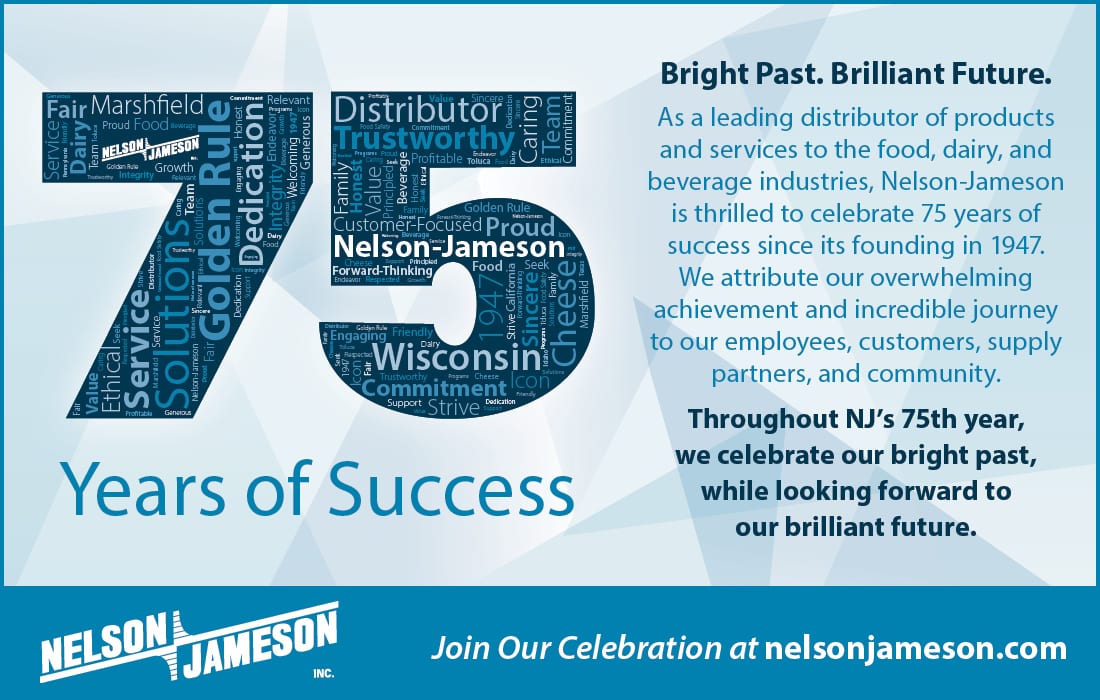SUPPLIER's perspective
TECH
Functional packaging solutions
for the deli meat industry
Food packaging is invariably changing to keep up with consumer demands, giving rise to an increasing array of innovations — one being the continued development of functional packaging through reclosable solutions.
When deli meat brands provide reclosability, they are not only creating a design that will help maintain their product’s shelf-life but assuring consumers that the brand’s packaging can be trusted for continued use. Since there is no one-size-fits-all answer to reclosable packaging solutions, it’s essential that producers understand what options are available — especially if their operation poses initial challenges to closure application. Collaborating with industry partners can be the first advantageous move toward discovering the proper course of action in overcoming said challenges. With ongoing innovations, more producers can accommodate their consumer’s lifestyles and experience increased marketing benefits by packaging their fully cooked, ready-to-eat meat products with reclosable technology.
Overcoming operational challenges
There are some high-performance processes within the meat packaging environment that should be carefully considered when choosing a closure technology. Brands that use thermoform package processing, for example, can have some unique challenges. Time, temperature and pressure are the three pillars to sealing of flexible materials. Brands should look to closures that can be hermetically sealed at lower temperatures. Since cooling time is often a critical factor in the overall cycle time for the thermoform process, it is important that all other parts of the process be extremely fast and efficient. Pliable closures that feed smoothly and seal cleanly can help improve a producer’s operating window.
Brands not requiring thermoforming that don’t have in-line zipper sealing equipment can benefit from pre-applied closures. This technology is designed to be added to film rollstock so packaging can be pouched, filled and sealed without the additional zipper application station. This allows brands to maintain ultimate efficiency in the manufacturing process while creating a more practical package for consumers to enjoy.
Overall, seal integrity is paramount in maintaining freshness throughout the product’s shelf life. While some operations pose more challenges than others, meat packaging companies should feel free to explore various options without worrying if closure application is even viable. There are solutions to augment even the most challenging processes.
Reclosable packs improve product shelf-life and help assure consumers that the brand’s packaging can be trusted for continued use.
By Jesse Busch
With the market for healthy snacks forecasted to grow 6.6% by 2030, deli meats can serve as a great alternative for consumers that want to maintain healthy habits and save time in the kitchen.
Reclosability to supplement consumer lifestyles
When it comes to mealtime, many consumers appreciate the advantage of something fast and easy to prepare. With the market for healthy snacks forecasted to grow 6.6% by 2030, deli meats can serve as a great alternative for consumers who want to maintain healthy habits and save time in the kitchen. As a protein-rich option for on-the-go snacking and simplified sandwich making, fully cooked meat products provide a convenience many consumers will value — so its packaging should function similarly.
For deli meats, a strong moisture and oxygen barrier is important for extending the product’s shelf-life. Closures that feature a tear bead design can further improve the package’s hermetic seal over other perforated styles. This helps to slow down oxygen transmission and maintain product quality. Pairing this feature with reclosability can also reassure consumers that their package has not been tampered with prior to purchase.
Whether it’s a family buying in bulk to feed various people or consumers shopping to supplement a smaller household, it’s important that deli meat packaging hold up for multiple servings. When used in combination with proper refrigeration, a zipper or slider on a flexible pouch can help keep food fresh and conveniently contained. By having a reclosable feature consumers don’t have to worry about decreased protection after their first serving. Instead, they are more likely to have the same great experience with every use.
Increased marketing benefits
Given that today’s consumers are looking for easy-to-use products in their busy lives, reclosability should be a given. According to a recent Insider Intelligence report, 71% of global consumers switched brands at least once in the past year, and more than half of those respondents were seeking better quality products. When consumers enter a grocery store, they are bombarded with an overwhelming number of options, and it can be difficult to determine which products are going to deliver a high-quality experience. Consumers cannot smell, taste or feel the product inside the package — but when they notice a closure, they can see that they will get specific benefits immediately. Reclosable flexible packaging that is transparent with simple graphics and fonts can help consumers feel as though the product came straight from the deli. This trend helps the product feel more authentic, as if it where freshly sliced for the refrigerated deli-meat section. These characteristics provide a clear competitive edge over competitor brands that are also competing for the consumer’s attention.
Reclosable packaging also presents opportunities for continuous consumer engagement with the brand. When consumers purchase a product that cannot be securely reclosed, they are more likely to repackage their deli meats into an airtight container. This removes the manufacturer’s branding and becomes a missed marketing opportunity every time the consumer uses the product. Even if the consumer has an otherwise positive experience, in a non-branded container it is seemingly comparable to every other deli meat product in the market. Offering a reclosable pouch for ready-to-eat meats can extend the entire household’s exposure to the brand, potentially leading to repeat purchases in the future.
While it may have been difficult in the past, modern technology has opened more doors for companies in the deli meat industry to advance with reclosable flexible packaging. With the ability to overcome complex operational challenges, brands can differentiate their meat products on the shelf and change consumer perceptions about these products.
Jesse Busch is business development manager for Fresh-Lock.

